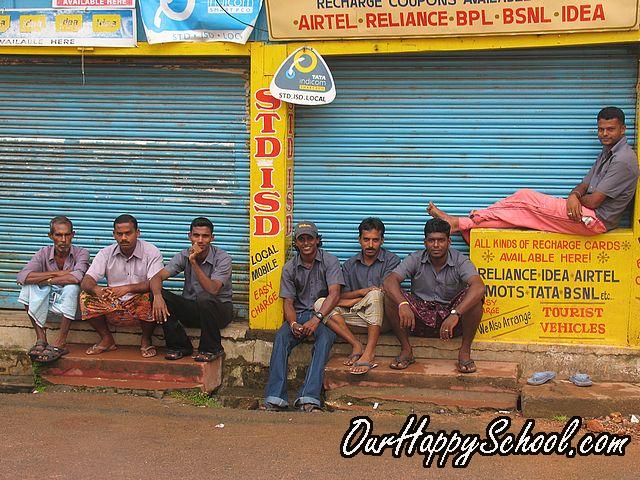Submitted by admin on Sat, 11/20/2010 - 13:51

1. A good ethical theory is able to satisfactorily explain why people experience a sense of moral obligation.
2. It is able to account for the moral obligations’ “binding force” and “overriding character.”
3. The worldview endorsed by a good moral theory is capable of accounting for the moral accountability in ethics. (For, otherwise, morality would just be like promulgating a strict state law but without real sanction or punishment for the offenders. In such a condition, there would be no essential difference between following and transgressing the law.)
Submitted by admin on Sat, 11/20/2010 - 13:45
1. People experience a sense of moral obligation and accountability
· One cannot doubt successfully a phenomenon of his own existence—namely, his moral experience.
· Even secularists like Kai Nielsen recommend that one “ought”to act or follow some rules, policies, practices, or principles. [Kai Nielsen, Ethics Without God. London: Pemberton, 1973, p. 82.]
· Even atheist Richard Dawkins declares that there are “moral instruction[s] on how we ought to behave.” [Richard Dawkins, The God Delusion. London: Bantam Press, 2006, p.347.]
Submitted by admin on Sat, 11/13/2010 - 01:22
 A poem contributed by a psychology graduate in Saint Louis University, Baguio City. She is a full-time wife to an educator and a mother to a 4-year old girl to whom the poem is dedicated. (You, too, can have your articles published here. Send them through e-mail to OurHappySchool@yahoo.com.)
A poem contributed by a psychology graduate in Saint Louis University, Baguio City. She is a full-time wife to an educator and a mother to a 4-year old girl to whom the poem is dedicated. (You, too, can have your articles published here. Send them through e-mail to OurHappySchool@yahoo.com.)
ONE CHILLY NIGHT in November, one special day
God granted me a gift I can never repay
It was four years ago but I can still remember
Your beautiful face, you were so tender
You are a star in the sky each time you smile
A very innocent child
You are sweet as honey
I feel like I can live without money
Submitted by admin on Wed, 11/10/2010 - 09:16
 SIMPLY PUT, “Everything that increases the role of subordinates is decentralization and that decreases the role is centralization.”
SIMPLY PUT, “Everything that increases the role of subordinates is decentralization and that decreases the role is centralization.”
Centralization is a process where the concentration of decision making is in a few hands. The important decisions and actions at the lower level are subject to the approval of top management.
On the other hand, decentralization is a systematic delegation of authority at all levels of management and in all of the organization. Authority is retained to the top management concerning major decisions and framing policies that involve the whole organization. Rest of the authority may be delegated to the middle level and lower level of management.
Submitted by admin on Wed, 11/10/2010 - 09:12
 HIGHER EDUCATION IN THE PHILIPPINES must be evaluated in terms of the quality of its graduates and their contribution to the needs of our society and nation. How can the management of higher education institutions be made more effective and efficient in order to produce globally competitive and ethically steeped workforce?
HIGHER EDUCATION IN THE PHILIPPINES must be evaluated in terms of the quality of its graduates and their contribution to the needs of our society and nation. How can the management of higher education institutions be made more effective and efficient in order to produce globally competitive and ethically steeped workforce?
One of the key solutions to this issue is to uplift the morals and nationalism of the students by offering enough subjects in the higher education curricula that could instill nationalism and patriotism among students. One of the reasons our society now is deteriorating is that of the so-called 'brain drain' wherein the cream of the crop among our graduates migrate to other countries, thus having no contributions in solving our own society's problems.
Submitted by admin on Wed, 11/10/2010 - 09:09

GOOD EDUCATION is not only about physical inputs, such as classrooms, teachers, and textbooks, but also about incentives that lead to better instruction and learning.
Education systems are extremely demanding of the managerial, technical, and financial capacity of governments, and, thus, as a service, education is too complex to be efficiently produced and distributed in a centralized fashion. Thus, the government adopts this innovation to decentralize the authority to the school level. Responsibility and decision-making over school operations is transferred to principals, teachers, parents, sometimes students, and other school community members. The school-level actors, however, have to conform to, or operate, within a set of centrally determined policies.
Submitted by admin on Wed, 11/10/2010 - 08:59
 IT HAS BEEN OBSERVED that enrolment in many private schools has tremendously gone down due to increasing cost of private education. Many students have been transferring to public schools and this phenomenon has caused worries to school owners. How can private school stay afloat in this kind of environment without sacrificing quality?
IT HAS BEEN OBSERVED that enrolment in many private schools has tremendously gone down due to increasing cost of private education. Many students have been transferring to public schools and this phenomenon has caused worries to school owners. How can private school stay afloat in this kind of environment without sacrificing quality?
Submitted by admin on Wed, 11/10/2010 - 08:54
On Philippine Education: The Basic Education School Reform Agenda (BESRA)
BASIC EDUCATION SECTOR REFORM AGENDA (BESRA) is a package of policy reforms that as a whole seeks to systematically improve critical regulatory, institutional, structural, financial, cultural, physical and informational conditions affecting basic education provision, access and delivery on the ground. It aims to create a basic education sector that is capable of attaining the country’s Education for All Objectives by the year 2015.
In summary, its objectives are:
1. Universal Adult Functional Literacy;
2. Universal School Participation and Elimination of Drop-outs and Repetition in First Three Grades;
3. Universal Completion of the Full Cycle of Basic Education Schooling with Satisfactory Achievement Levels by All At Every Grade or Year; and
4. Total Community Commitment to Attainment of Basic Education Competencies for All.
In order for the basic education sector to achieve the above listed desired educational outcomes for all Filipinos, the BESRA focuses on specific policy actions within five key reform thrusts (KRT) as follows:
Submitted by admin on Wed, 11/10/2010 - 08:47
1. Clear School Mission
There is a clearly articulated school mission through which the staff shares an understanding of and commitment to instructional goals, priorities, assessment procedures and accountability. Staff accept responsibility for students' learning of the school's essential curricular goals.
Submitted by admin on Wed, 11/10/2010 - 08:32
 THE MAIN CRITIC of the sex education is the Catholic Church. Its concern focuses mainly on the supposed antagonizing ideas of sex education with the teachings provided in the Scriptures such as sexual abstinence, monogamy and chastity. It is also alleged that sex education encourages promiscuity among young adolescents. Further, conservative critics say that, “Sex education does not provide appropriate moral context for sex and has failed in ‘reinforcing the traditional Christian ethic reserving sex for marriage’”.
THE MAIN CRITIC of the sex education is the Catholic Church. Its concern focuses mainly on the supposed antagonizing ideas of sex education with the teachings provided in the Scriptures such as sexual abstinence, monogamy and chastity. It is also alleged that sex education encourages promiscuity among young adolescents. Further, conservative critics say that, “Sex education does not provide appropriate moral context for sex and has failed in ‘reinforcing the traditional Christian ethic reserving sex for marriage’”.


Pages